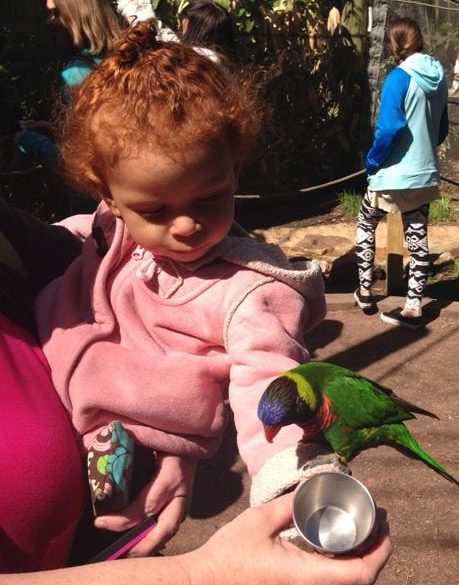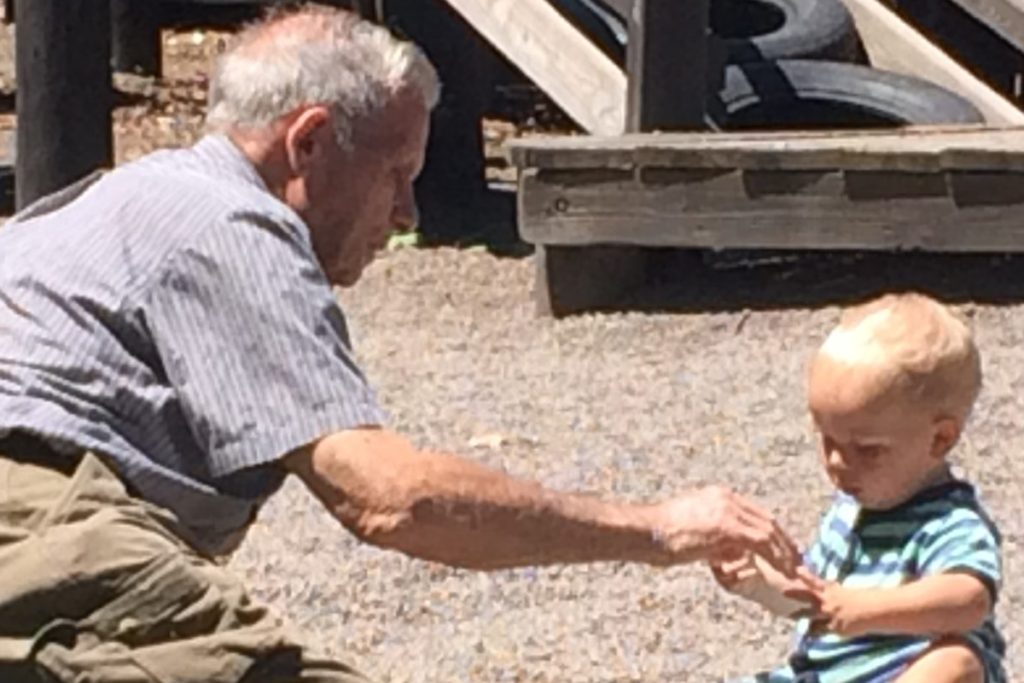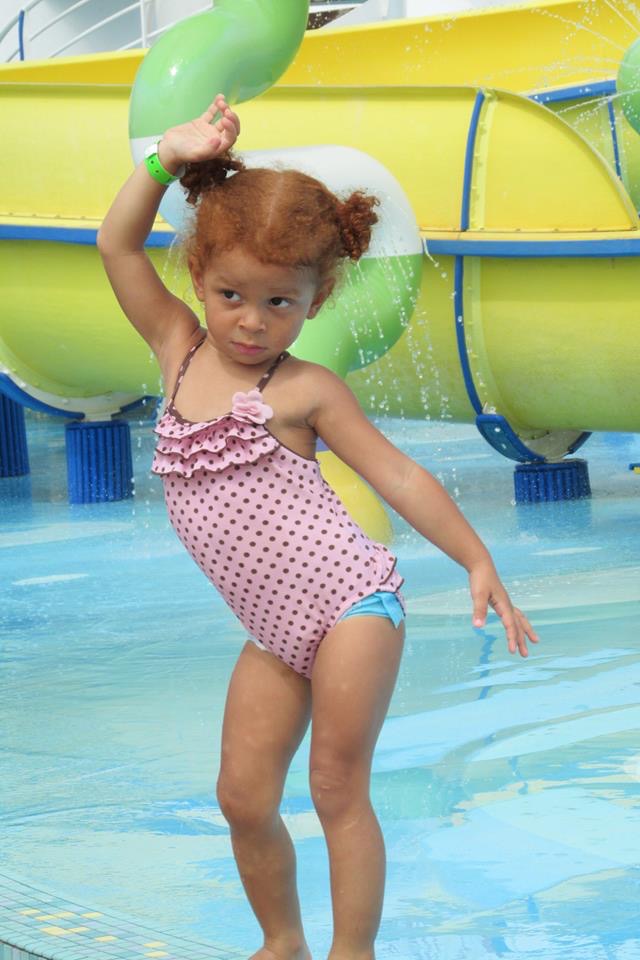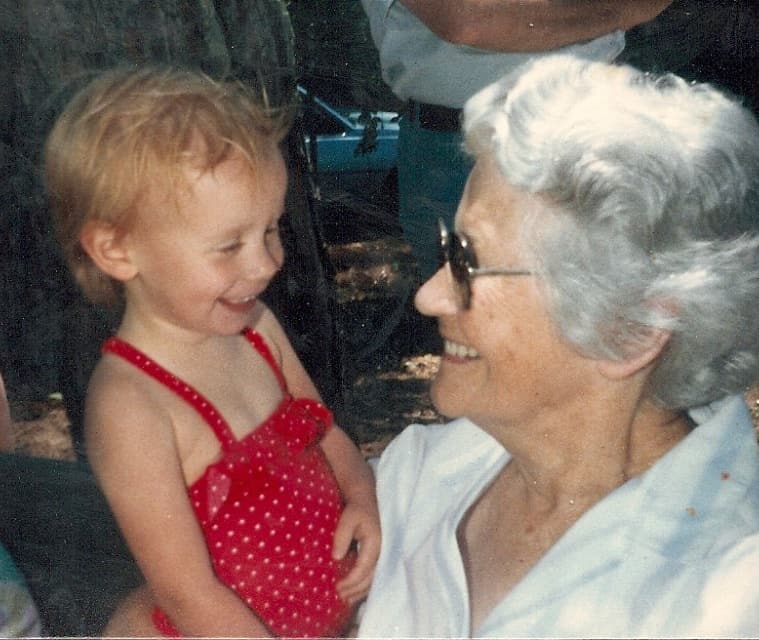This Is How Toddler’s Show Love
I’ve seen for 35 years the give and take between parents and toddlers both at the pediatric hospital where I work and as a parent, foster parent, and grandparent. It is amazing how being loved so much can make you feel so unloved and inadequate. Let me share what I have learned.
Toddlers show love by running away, by impishly looking at you while you are saying no and continuing with their task. Their job at this age is to discover their world and how to interact with it and they invite you in the strangest ways to be a part of this discovery. To the toddler everything is magical and new and the one they love the most is the one they want to be a part of this discovery. Welcome aboard, come along for the ride.

Toddlers are hard. Believe me, I have lived through a few. Some of the things that have helped me to survive I will share with you below.
A World Of “No” And “I Do It Myself”
Communication for toddlers is somewhat limited. When they scream “no” at us it is often not “no” that they are trying to communicate. If they could verbally express themselves they would likely replace no with “could you help me with this not do it for me”. It is a stop word. They learn it from us in infancy and early toddler years when we use it to set safe boundaries. For them they are setting boundaries to protect their learning and skills development. They are developing independence and the more we can help them with this task the more cooperation we get.
Developing Independence
Toddlers are learning independence and skill building. This is the age of pushing you away not because they don’t want or need you but because they need to have you see them as capable and independent. They are moving from needing you to do everything for them, to needing you to see them learn to do for themselves.
This new boundary is what most causes us difficulty as parents. I don’t know about any of you but for me feeding that baby and putting the food into “the hanger” was much easier than watching my toddler pour a cup of milk in his cereal and the mess that ensues when he feeds himself. For me they had to insist to some degree to gain independence or I would never have let them do for themselves.
Things To Know About Toddlers
Toddlers need 12-14 hours of sleep

Parents are often shocked by the amount of sleep actually recommended for a toddler. This for some children comes in a huge block of time from 6 p.m. to 8 a.m., but for most there is a period of 10-12 hours at night with 1-2 hour naps during the day. While there is some variance in the amount of sleep needed. If your child is getting significantly less sleep than this, this could be contributing to difficulties with behavior. Sleep for young and old alike has a direct relationship to our ability to self regulate. I will cover in a more detailed post things to do to improve sleep and regulate sleep cycles.
Toddlers Need Choices

As was discussed above the primary job of a toddler is to develop independence. This however does require regulation because toddlers believe they can do anything and while we know this isn’t true, we do want them to have a sense of self reliance. One way to accomplish this is to give them choices of things that they are capable of doing. While cooking we would want to give them the option of do you want to pour the water in the bowl or would you rather help me crack the eggs. You would not want to include as a choice something like putting a dish in a hot oven. Being able to help you gives a feeling of accomplishment and helpfulness that develops into skills for self care later in life. When this natural curiosity and desire to help are squelched at a young age it impacts a child’s confidence and desire to learn new skills and be helpful. Just a side note – anytime you have a child involved in anything in the kitchen be prepared for a mess. This is normal but it helps when you expect it.
Toddlers need regular meals
Like sleep, regular meals are important in maintaining a steady emotional state for your toddler. Toddlers are very active which means they are generally burning calories at a pretty consistent rate. This being said because they are active they don’t really like to stop to eat. Often a toddler will not realize they are hungry until they are – as they will tell you – “Starving”. While it is not always possible to avoid those starving moments it is helpful when regular meals are given and healthy snacks are provided when spans between meals are longer. Toddlers tend to eat better when meals are served in an area that is separate from play areas and few distractions are around. Foods they tend to do the best with are things that they can fix or feed themselves. Engage them in fixing their food and often it is easier to get them to try new foods. Feeding your toddler can be an entire topic in itself. What is important to remember is to check yourself and your schedule if your child is especially grumpy or irritable and assess whether they might be hungry.
Toddlers need playtime

Toddlers have lots of energy. They are ever curious and always on. They will get into things regardless of how wonderful a parent you are and how attentive you are to their needs. They will have accidents and get hurt. Consider yourself blessed if it is only a minor injury. Toddlers need to play. It is their way of discovering the world they live in. As much as possible provide a safe play area and dedicated time when you play with them or just watch them play. After realizing the impact it had on my foster children and grandchildren, one of my favorite forms of play and interaction with them became an activity known as “Narrating” or “Attending”. It is simply calling out to them as they play and describing what they are doing. It sounds a little like this— Look at Jack! He’s climbing the steps to the slide, look he’s at the first step, now he’s climbing to the second step, look he’s made it to the top. Now Jack is sitting down. Is he going down the slide? Yes, Wow, Look at Jack go! Now he’s going back to the ladder……… You get the picture. It seems like a minor activity but my children and grandchildren always are asking me to do “the talk”. It shows them you are there and interested in what they are doing. When they hear what they are doing verbally even when they may not be about to make the best decision it helps them to see this and auto correct their behavior. This was an amazing discovery for me and is absolutely magical at correcting poor behavior. While as parents you have things you must do just remember that playing for your toddler is as important as going to your job is for you.
Toddlers need you to read to them
While I recommend that you read to your baby from very early moments, for toddlers this is an extremely important activity. The majority of language skills are acquired in the 2nd year of life. Being talked to and read to strengthens a toddlers vocabulary and sharpens listening skills. Besides learning language skills from reading, a toddler also learns about the things written about in books and the dexterity required to manipulate pages.
Toddlers need cuddle time

As much as toddlers like to wiggle it sometimes seems an impossibility to catch them at a time when cuddling is an option. It is important to schedule time with your toddler to hold them. Sometimes this requires creative tickling with pauses between to cuddle. Getting them to let you rub lotion on them or counting or naming body parts. Regardless of their activity your toddler needs to feel your touch. They need to know that you are available to them to meet needs even that they don’t know they have.
How Do Toddler’s Show Love?
In summary, toddlers show you love by running from you, by testing your boundaries, by giving you items that are discoveries to them but just plain gross to you – like boogers they just plucked from their nose or poop they just pulled from their pull-up. They are sharing with you the most important person in their lives the most amazing things they have discovered. Keeping this in mind can make you an awesome parent because now instead of saying “Oh, Gross!!!” you can say “Look what you discovered!” and instruct them the best place for poop and boogers to remain.